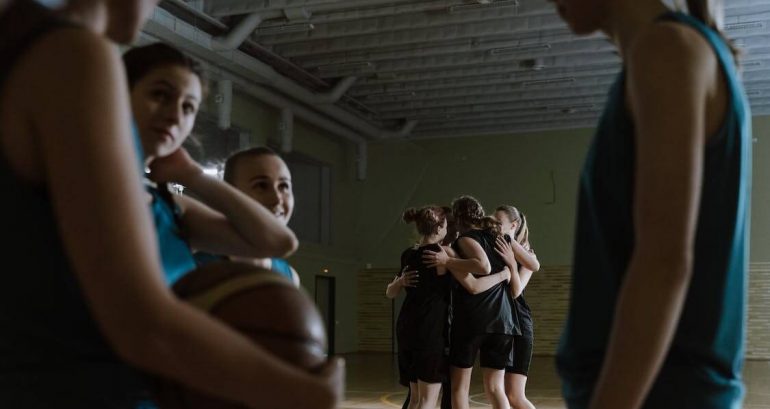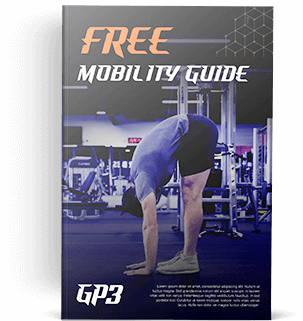Key Points:
1. When we engage in competition, we’re primarily motivated either to achieve success or to avoid failure.
2. There’s a continuum that describes this in more detail. It helps explain why we do well in certain situations, but not in others.
3. Sports are full of identity traps, but we’re never taught what to do about this.
Estimated reading time: 5-10 minutes
Part 1 focused heavily on the “no pain, no gain” mindset often encouraged by participation in sports. To reiterate, this absolutely has some benefits, and I strongly believe that the mental toughness gleaned from sports pays off. However, as with anything, moderation is key. We must all come to terms with the reality that a mindset which serves you well in one avenue can actually be detrimental in another, or can be detrimental if taken too far.
I’ve mentioned in previous pieces focused on nutrition that many problems stem from ignoring our bodies’ natural cues and impulses. For example, the infamous “clean plate club” enforced by many parents is partially responsible for kids losing touch with what fullness feels like. This can encourage overeating and often persists into adulthood.
Similarly, the no pain, no gain mentality encouraged by sports can lead us to ignore our bodies’ message that something is wrong and needs attention. I can’t tell you how many times I’ve heard some variation of, “Well, it kind of hurts when I do this exercise…should I just push through it?” At the risk of sounding over the top here, absolutely ****ing not.
This isn’t the only trap sports can cause us to fall into, however. Another huge area of potential suffering is one of my favorite subjects, one that you’re probably sick of me referencing every other week: identity.
Sports and Motivation
Before we get there, however, let’s take a brief detour. There’s an interesting concept within sports psychology that relates to why athletes perform better in certain games or against certain opponents compared to others. It’s a spectrum that runs from “Motivated to Achieve Success” to “Motivated to Avoid Failure.”
As with any spectrum, it’s rare to find someone who sits completely at one end, but it does offer a helpful framework for understanding behavior and outcomes.
Those who lean more towards the “Achieve Success” side tend to do their best against opponents of roughly equal skill. They relish the challenge of the uncertain outcome, and show off their capabilities when faced with a steep but not-insurmountable challenge.
On the other hand, they tend to underperform against weak opponents. This is partially due to an increase in difficulty focusing because the lower perceived challenge level means victory is essentially guaranteed. Against very strong opponents, they tend to fall apart due to the incredibly low probability of success.
Those who are motivated to avoid failure function in almost the entirely opposite way. They have a harder time performing their best when the outcome is uncertain, so they tend to play below their potential against opponents of roughly equal skill.
However, they tend to do quite well against both weak and strong opponents. Against less-skilled opposition, they feel little pressure and freely express their skill without fear of losing. When in the underdog role, they know that there is little expectation of success, and a win or great performance is seen as an even-more-impressive bonus. So, again, freed from the pressure due to the perceived certainty of the outcome, they perform well even against stronger opposition.
Motivation and Identity
I have a suspicion that there is a correlation between where someone falls on this spectrum and how strongly they hold a sports-related identity. The stronger an identity, the more likely we are to want to protect it. Because we humans tend to be loss-averse creatures, protecting our strongest identities unconsciously becomes incredibly important. This means avoiding a failure that challenges an identity can become a stronger motivation than achieving a success that reinforces it.
Basically, the stronger the identity, the greater potential it has to cause mental suffering when it is challenged. Sports offer a particularly interesting test for this, because every single practice and game offers opportunities for our identities to be tested.
If you make a bad pass, miss an easy chance, or your opponent gets the better of you, that offers direct evidence contrary to your identity as “a good player.” But, events like this happen all the time if you play sports at a competitive level. They’re basically unavoidable. This is part of why we tend to praise elite players for “having a short memory” or “being mentally tough” for quickly moving on after a mistake and performing under pressure.
Why do we play the game?
Timothy Gallwey, author of The Inner Game of Tennis, asks us to examine our motivations in a somewhat goofy but interesting way. To paraphrase, he asks, “Are you playing the game of ‘Good-O’ or ‘Fun-O.’” To clarify, are you playing the game to prove that you’re better than other people, or because you actually find joy in it? Many of us would instinctively say that of course we play because we find it fun, but sometimes our actions on the field don’t always match this declaration.
It was somewhat sobering to reflect that for much of my soccer career, I played from a place of protecting an identity rather than for the love of the game. I often found myself in personal, trash-talking battles or becoming extra motivated in response to a perceived slight from an opponent. These are all telltale signs of playing from a point of defensiveness rather than joy. A story from my junior season highlights this particularly well.
That year, my college team recovered from a difficult start to the season to sit atop the conference standings heading into our final match of the season. However, the league was so tight that season that a variety of scenarios existed. If we won this last game, we’d be guaranteed to at least tie for first in the standings and have home field advantage in the playoffs. If we tied, we would finish second or third based on the results of other matches. If we lost, it was highly likely that we would drop all the way to 5th place and miss the playoffs entirely.
Our opponents that day also faced a “win and you’re in,” scenario, where they needed to avoid defeat to guarantee making the playoffs. Add to this the fact that both my team and our opponents genuinely did not like each other, and the recipe for a bad-natured game was in place.
Due to a variety of unfavorable circumstances, my team was not playing well, and found ourselves 2-0 down with only 15 minutes left. Somehow, we made a miracle comeback, scoring twice and taking the game to overtime. In this sudden-death period, an opposing player blocked a shot with his hand while in the 18-yard box, and we were granted a penalty kick.
As the designated penalty-taker, I had a chance to win us the game and the regular season championship. All I had to do was score from 12 yards out, and the game was over.
As I stepped up to take the shot, an odd sense of calm washed over me. I had a strong feeling that I would score…and I was right! The goalkeeper guessed the wrong way, and my shot nestled in the back of the net.
However, instead of wheeling off in celebration with my teammates, I was overcome with the physical and emotional exertions and found myself too tired to move. Retroactively, I realize that because I had staved off the identity threat of “losing to a team we’re better than,” the overriding emotion was more a sense of relief than excitement.
Unfortunately, the first face I saw after scoring was that of the opposing team’s captain, a player with whom I’d had a silly, on-field rivalry. This is where the egoic need to defend an identity showed its ugly side. My brain probably said something like, “This guy’s team tried to deny us our rightful place at the top of the league!” “And he thinks he’s better than me? No way.”
So, rather than joyously celebrate with my teammates, I taunted him, rubbing in our victory in a rather unsportsmanlike way. Well, the only thing people like less than a sore loser is a sore winner, and this sparked a minor altercation between the two teams that somewhat tainted the win.
Hindsight is 20/20
Looking back, I realize that the pain of losing this game was too big a potential challenge to my identity as a good player personally and my subjective perception that, “Our team is so much better than these guys. We play the game the ‘right’ way, and they don’t.”
We came so close to losing that the strongest feelings present were relief and a childish desire to remind the opposition that we were better than them.
The moment the ball hit the back of the net could have been one of the most joyful moments of my soccer career. Scoring the winning goal in sudden-death overtime to win the championship…that’s the stuff dreams are made of! But, rather than happily and spontaneously celebrating, my need to protect an identity soured the moment. I clearly hadn’t yet realized that we are not our thoughts.
Now, I don’t want to create the impression that the team didn’t get to celebrate later. We certainly did. We also doubled down on this success by winning the conference championship playoff tournament as well, again in sudden death overtime.
I’m also not dwelling on this moment or beating myself up for it. I still greatly cherish memories of experiencing and celebrating those wins with my teammates. However, learning what I have about identity did help me understand my behavior. For a while afterwards, I would often think things like, “Why did I act that way? I was such a jerk. Why didn’t I just sprint off and celebrate with a victory dogpile?”
Well, now I know.
When you cling too tightly to anything, it sucks the joy out of whatever it is. The love that initially drew you in is replaced by a negativity that can affect not only you, but those around you. When we feel that something is so deeply part of us that we don’t know who we’d be without it, that’s scary. So we fight to hold on to it as if we’d actually die without it. But, when we realize this isn’t true, we’re free to engage with it wholeheartedly.
So, if you’ve ever looked back on your conduct during a competition and been embarrassed, identity is probably to blame. You were likely unknowingly protecting some form of the belief “I’m a winner,” or its cousin, “I’m not a loser.”
Looking out for this is something I wish all young athletes were taught. It would help us understand ourselves more deeply, and thus allow us to compete in a healthier way.
Before you go, I’d love to hear from you! Can you recall a time from your playing days when you may have been unconsciously protecting an identity? Reply to this email and let me know!

